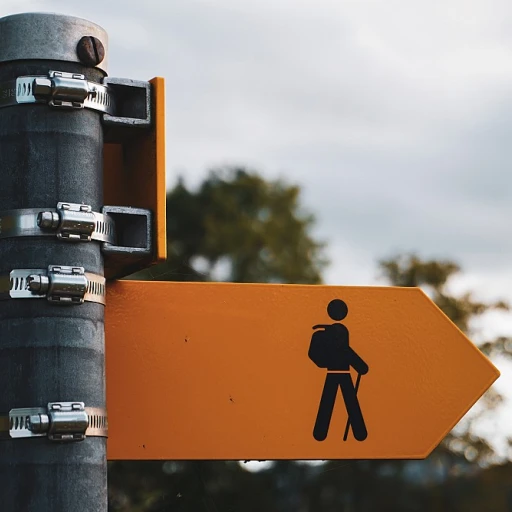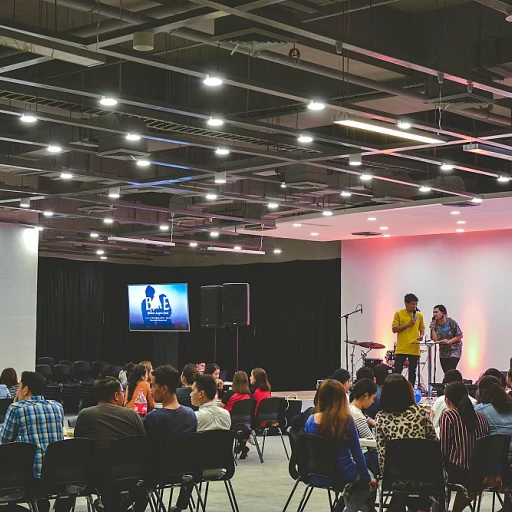
How Instacart approaches background checks
Instacart’s Commitment to Safe and Reliable Service
Instacart’s approach to background checks is rooted in its responsibility to both customers and shoppers. The company relies on background screening to help ensure that the people delivering groceries are trustworthy and meet safety standards. This is especially important in the gig economy, where shoppers interact directly with consumers and often access private residences or handle sensitive information.
Instacart partners with third-party background check providers, such as Checkr, to conduct these screenings. The process is designed to comply with the Fair Credit Reporting Act (FCRA), which sets standards for consumer reporting and protects applicants’ rights. Instacart’s background check process is similar to what you’ll find with other gig platforms like DoorDash, but each company may have its own criteria and procedures.
- Background checks are required for all new Instacart shoppers before they can start working.
- The company reviews criminal records, driving history, and verifies social security numbers as part of the screening.
- Checks are conducted through a secure, online process, and applicants are notified about their rights under the FCRA.
It’s important to note that background check requirements can vary by state or city, and the process may be updated as regulations or industry standards evolve. If you’re curious about how background checks apply to independent contractors in general, you can learn more in this guide to running background checks on 1099 contractors.
Instacart’s use of background checks is part of a broader effort to build trust in its platform. As gig work continues to grow, understanding how these checks work—and what they mean for both shoppers and consumers—remains a key topic in the industry.
What the background check process looks like for Instacart shoppers
What Instacart Shoppers Experience During Screening
For anyone interested in becoming an Instacart shopper, the background check process is a key step before you can start working. Instacart partners with a third-party provider, Checkr, to conduct these checks. This is similar to what you’ll find with other gig economy companies like DoorDash, which also use background screening to help ensure consumer safety. The process usually starts after you submit your application and provide basic information. Instacart will ask for your consent to run a background check. You’ll need to provide your Social Security number and sometimes a copy of your driver’s license if you plan to deliver orders. The company uses this information to verify your identity and check your criminal history and driving record. Here’s a quick look at what typically happens:- After applying, you’ll receive an email from Checkr or another background check provider.
- You’ll be asked to provide personal details for identity verification.
- The background check will review your criminal record, driving history (if you’re delivering), and sometimes other public records.
- Instacart will notify you once the check is complete. This can take a few days, but sometimes longer depending on your location and the records being checked.
Key factors checked during Instacart’s screening
What Instacart Screens for During the Background Check
When you apply to become an Instacart shopper, the company takes background checks seriously. The process is handled by a third party, often Checkr, which specializes in background screening for gig economy platforms like Instacart and DoorDash. This helps ensure that shoppers meet safety and trust standards before they start working with consumers.
- Criminal history: Instacart will check for any criminal records, including felonies and misdemeanors. The company looks for offenses that could impact consumer safety or the integrity of the service. This is a standard part of background checks in the gig economy.
- Driving record: If the shopper role involves driving, Instacart will review your driving history. This includes checking for DUIs, reckless driving, or a pattern of traffic violations. A clean driving record is important for roles that require vehicle use.
- Identity verification: The process will verify your social security number and confirm your identity. This helps prevent fraud and ensures that the person applying is who they say they are.
- Compliance with the Fair Credit Reporting Act (FCRA): Instacart’s background check process follows FCRA guidelines, which means you have rights regarding how your information is used and reported. If there’s an issue with your report, you can contact Instacart or the screening company to dispute errors.
Instacart does not typically check credit history for shoppers, but the company does rely on consumer reporting agencies to gather accurate records. The depth of the check may depend on your location and the specific shopper role you’re applying for.
For those interested in how background checks relate to insurance and risk management, you can learn more about the essentials of a plumbing insurance policy and how background information can play a role in broader risk assessments.
Overall, the Instacart background check process is designed to help protect both shoppers and consumers, while maintaining compliance with reporting and privacy laws. If you’re wondering how long does the process take, it can vary, but most checks are completed within a few days.
How background check trends are changing in the gig economy
Shifting Standards in Gig Economy Background Checks
The gig economy, with companies like Instacart and DoorDash, has changed how background checks are handled. As more people look for flexible work, the process for screening shoppers and drivers is evolving. Instacart uses third party services such as Checkr to review criminal history, driving records, and identity details. But the way these checks are done is not the same as it was a few years ago.
- Faster Turnaround: Technology and automation have made the background check process quicker. Applicants often want to know how long does a check take. For Instacart shoppers, results can come back in a few days, but delays still happen if records are hard to verify.
- Broader Data Sources: Companies now pull from more databases, including national criminal records, driving history, and social security verification. This helps catch issues that might have been missed before, but it also raises concerns about accuracy and outdated information.
- Fair Credit Reporting Act (FCRA) Compliance: With more consumer awareness, gig companies must follow strict rules for reporting and notifications. Applicants have the right to know if something in their background check led to a decision, and they can dispute errors.
- Continuous Monitoring: Some platforms have started ongoing checks, not just one-time screenings. This means a shopper’s criminal or driving record could be reviewed again while they work for Instacart or DoorDash.
These trends reflect a balance between protecting consumers and giving more people a chance to work. Still, the process is not perfect. Errors in criminal records or driving history can affect someone’s ability to become an Instacart shopper. Applicants are encouraged to check their own records and contact Instacart or the third party provider if they spot mistakes.
As the gig economy grows, expect background checks to keep adapting. The focus will likely remain on safety, speed, and fairness for both shoppers and the people they help.
Challenges and concerns for applicants
Common worries for Instacart shoppers during screening
Going through the Instacart background check process can be stressful for many applicants. Whether you are a new Instacart shopper or have experience with other gig platforms like DoorDash, there are several concerns that often come up during the screening phase.
- Uncertainty about what is checked: Many shoppers wonder exactly what records Instacart and its third-party partner, Checkr, will review. The process typically includes a criminal background check, driving record, and social security number verification. However, the specific details and depth of these checks can vary by location and role.
- Impact of past records: Applicants with a criminal history or driving violations often worry about how these records will affect their eligibility. Even minor incidents from years ago can cause anxiety, especially since gig companies like Instacart and DoorDash have different standards for what is acceptable.
- Length of the process: Many people ask, "How long does the background check take?" Delays can happen for various reasons, such as incomplete information or issues verifying records. This can leave shoppers in limbo, unsure when or if they will be able to start work.
- Accuracy and fairness: There are concerns about errors in background checks, especially when using third-party services. Mistakes in criminal or driving records, or mismatches with social security numbers, can unfairly impact an applicant’s chances. The Fair Credit Reporting Act (FCRA) gives consumers the right to dispute inaccurate information, but the process can be confusing.
- Lack of transparency and communication: Some shoppers report difficulty getting updates or support from Instacart if there is a problem with their check. Knowing how to contact Instacart or Checkr for help is not always straightforward, which can add to the frustration.
What applicants can do to help themselves
If you are applying to be an Instacart shopper, it helps to be proactive:
- Review your own criminal and driving records before applying, so you know what might come up.
- Make sure your personal information, like your social security number, is accurate and matches your application.
- If you have concerns about your background, research the company’s policies and the FCRA reporting rules.
- Keep records of all communications with Instacart and Checkr, in case you need to follow up or dispute a result.
Understanding the check process and your rights as a consumer can make the experience less stressful and help you navigate any challenges that arise during the Instacart background check.
What to expect after passing or failing the background check
What happens after your Instacart background check?
Once the background check process is complete, Instacart will notify you of the results. If you pass, you’ll typically receive an email or app notification inviting you to move forward as an Instacart shopper. The company relies on third party providers like Checkr to review your criminal record, driving history, and social security number, so the process is fairly standardized. If you’re cleared, you can start accepting orders and work as a shopper. Instacart shoppers who pass the background check can expect to:- Access the Instacart shopper app and begin the onboarding process
- Receive instructions on how to pick up and deliver groceries
- Get support from Instacart’s help center if needed
If you don’t pass: next steps and your rights
If the background check reveals issues—such as a criminal history, problematic driving record, or mismatched social security information—Instacart will notify you. The company must follow fair credit reporting (FCRA) rules, which means you’ll get a copy of your background check report and a summary of your rights as a consumer. You have the right to dispute any inaccurate information. For example, if your criminal background or driving record contains errors, you can contact Instacart or the third party provider (like Checkr) to start a dispute. This process can take several days or weeks, depending on how quickly records are updated.How long does it take to hear back?
The time it takes to complete the Instacart background check process varies. Most shoppers hear back within a few days, but delays can happen if records are hard to verify or if there are issues with your social security number. If you’re waiting, you can check Instacart’s status page or contact Instacart support for updates.What about reapplying or trying other platforms?
If you don’t pass Instacart’s background check, you may be able to reapply after a certain period, especially if your record changes or you resolve any disputes. Some applicants also look into other gig platforms like DoorDash, but keep in mind that DoorDash background checks are similar and also use third party screening services. Each company has its own criteria, so your results may vary.Key takeaways for applicants
- Instacart uses background checks to ensure shopper and consumer safety
- Passing the check means you can start working quickly
- If you fail, you have rights under fair credit reporting laws
- Always review your background check report for accuracy
- Contact Instacart or Checkr if you need help or want to dispute your records













